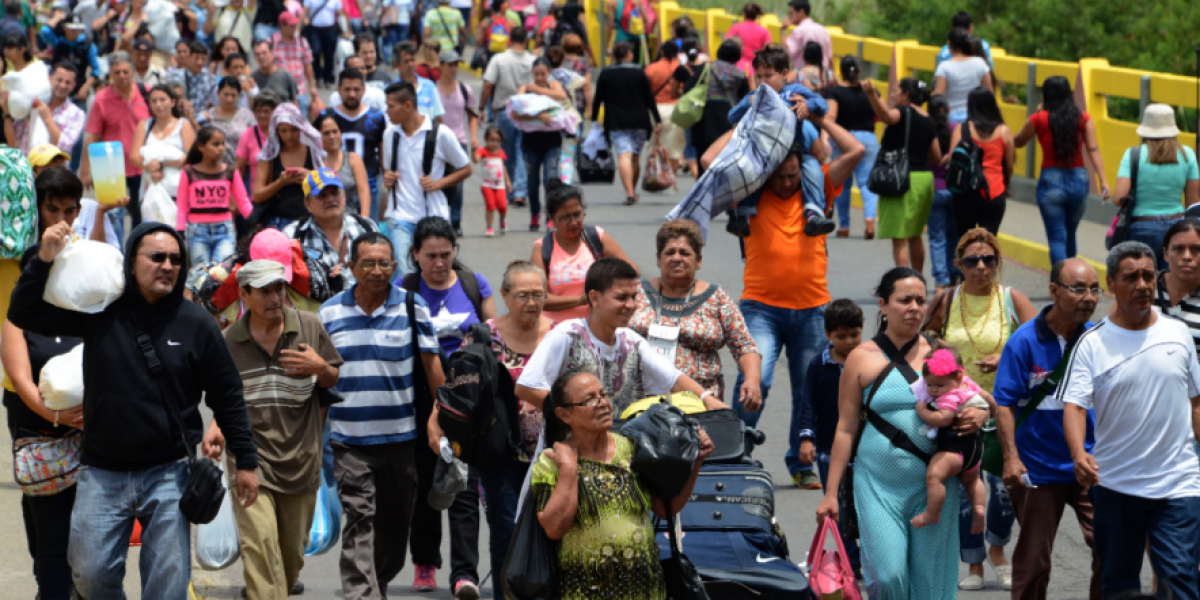Venezuela: The Challenges of Venezuela’s Humanitarian Crisis
23 July 2018

An estimated fifty thousand people cross the border between Venezuela and Colombia daily. As of December 2017, according to data from Colombia’s central immigration authority (Migración Colombia), over half a million Venezuelans have crossed into Colombia. This number includes nearly 180,000 people who migrated through formal or regular channels such as special permits to stay, border migration cards, or work visas. Migraciòn Colombia estimates that almost 400,000 other migrants entered Colombia informally, including around 150,000 migrants who overstayed visas and an estimated 225,000 who entered through unauthorized roads. However, these estimates are not considered completely accurate because there are only six official entry points into Colombia and more than one hundred informal crossing points spread out over the 2,000-kilometre long border.
On the Simón Bolívar and Francisco de Paula Santander border bridges, which are official crossing points from Venezuela, hundreds of people can be seen walking to Colombia carrying luggage and accompanied by their families. On the Colombian side of the border, long lines are visible at immigration offices where entry into the country is registered. From there, many people set off to other cities, and even countries, in the region. In fact, near the Simón Bolívar Bridge, international transport terminals were opened a few months ago. From these terminals, it is possible to board buses to Peru, Chile or Ecuador for around $350 USD.
For the past few months, about 500 people from the Yukpa binational indigenous community have been living under the Francisco de Paula Santander bridge. They left their homelands to request medical attention and food amid Venezuela’s well-known crisis. Currently, the JRS Colombia Norte de Santander team offers humanitarian aid and medical assistance to the Yukpa, who remain unprotected because they are not recognized as binational by the Colombian State.
Among other ailments, outbreaks of tuberculosis, stomach diseases, and malnutrition have already swept the community. With the support of JRS Colombia, the community’s situation was brought before the Inter-American Commission on Human Rights (IACHR) requesting precautionary measures for the protection and differentiated attention to the needs of these indigenous people.
From 2016 to March 2018, JRS-Colombia also served around 7,000 people who left Venezuela as forced migrants. Most of these migrants had urgent humanitarian needs related to health, medicine, and food. Within the work of JRS Colombia, pregnant or breastfeeding women, the chronically ill, unaccompanied minors, single-parent families, and the elderly are prioritized. JRS Colombia has also given specific legal advice on the risk of statelessness or issues with nationality confirmation. These legal problems are of particular concern to people born in Colombia by foreign parents with irregular migratory status. Finally, many of the migrants have also received psychosocial attention to aid them in overcoming the initial impact of forced migration and its subsequent effects.
Currently, JRS-Colombia conducts dialogues with authorities and humanitarian agencies to bring more visibility to the humanitarian crisis in Venezuela and to encourage Colombia to make a greater commitment to the protection of forced migrants throughout the country.



